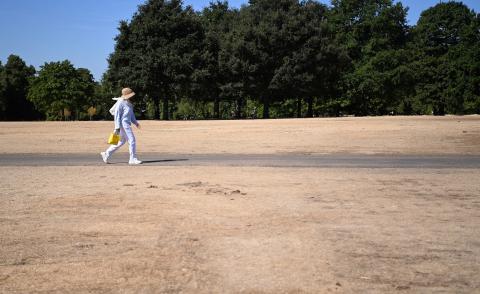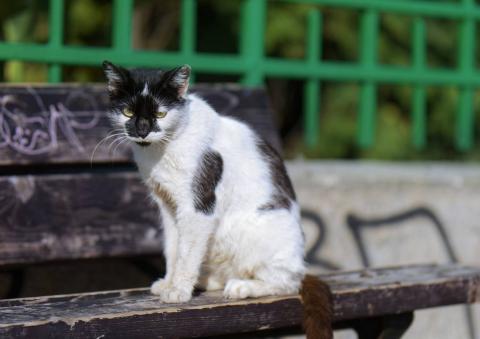
Pablo de Olavide University
If you are the contact person for this centre and you wish to make any changes, please contact us.
Principal investigator of the 3D Genomics group at the Andalusian Centre for Development Biology (CABD)
Physical Education and Sports teacher.
Associate Professor, Department of Ecology.
Tenured scientist CSIC & PI, Andalusian Center for Developmental Biology, CSIC-Pablo de Olavide University
Postdoctoral researcher in Conservation Biology.
Professor of Human Geography at the Pablo de Olavide University and head of the Citizen Drought Observatory

By 2030, there will be more than 1 billion adolescents (aged 10 to 24) living in countries facing preventable and treatable health issues. This figure represents half of the world’s adolescent population, according to a new analysis by the Lancet Commission on adolescent health and well-being. Among these health issues, the study highlights HIV/AIDS, early pregnancies, risky sexual behavior, depression, poor nutrition, and injuries.

A team from the Children's Hospital of Philadelphia and Penn Medicine (United States) has successfully treated a baby diagnosed with a rare genetic disorder using personalised CRISPR gene editing therapy. The baby, known only by the initials KJ, was born with a rare metabolic disease known as severe carbamoyl phosphate synthetase 1 (CPS1) deficiency. After spending the first months of his life in hospital on a very restrictive diet, KJ received the first dose of his tailored therapy in February 2025, between six and seven months of age. The treatment, which is being used for the first time for this type of disorder, was administered safely, and the baby is now growing well and improving. The case is detailed in a study published by The New England Journal of Medicine (NEJM).

A team from the Centre for Genomic Regulation (CRG) and Pompeu Fabra University (UPF) in Barcelona has developed an artificial intelligence tool capable of designing regulatory sequences for genes that do not exist in nature. When introduced into cells, these enhancers can increase or decrease gene activity in a specific way depending on the type of cell targeted. According to the authors, ‘the potential applications are enormous. It's like writing software, but for biology.’ The results are published in the journal Cell.

The work of a global commission, published in The Lancet Diabetes & Endocrinology and endorsed by more than 75 medical organisations worldwide, presents a new approach to diagnosing obesity. This is based on other measures of excess body fat, in addition to body mass index (BMI), and on objective signs and symptoms of poor health at the individual level.

The impact of animal abandonment goes beyond the pets who suffer it, it is a public health, safety and funding issue as well. Although there have been some improvements in recent years, the experts consulted agree that the system continues to fail. In this guide, we analyze what has changed, who does this issue affect, and what must be improved.

A study published in the journal PLOS ONE, which includes data from over 3,000 Spanish adolescents and children, has shown that those living in more walkable areas report spending more minutes per day engaging in active transportation compared to those from less walkable neighborhoods. Along those lines, the lowest average minutes spent playing outdoors are observed among participants from neighborhoods with lower socioeconomic status and less walkability. The research is part of the PASOS study, coordinated by the Gasol Foundation.

The lack of rainfall and the decrease in available water resources have caused 47% of European territory to be on drought pre-alert and 17% to be on alert. The lesser experience of northern countries in managing this phenomenon and the high vulnerability of southern regions mean that this drought is having a major impact on various economic sectors, in addition to supply cuts.

The draft Animal Protection Bill has just been approved by the Council of Ministers, awaiting ratification in Congress. The authors consider that the text includes improvements compared to its first version, but consider that it still contains negative aspects.